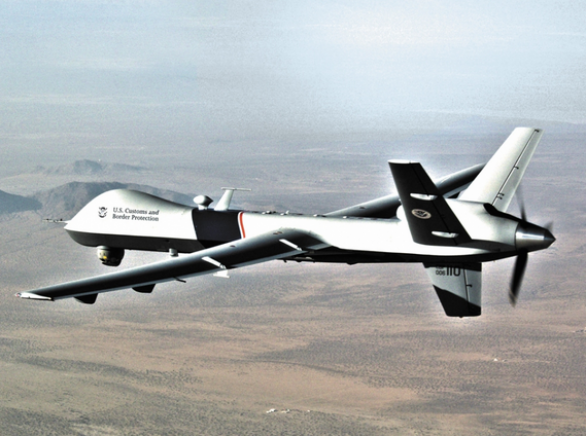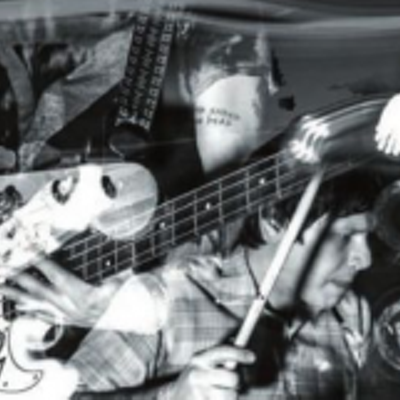Friday, September 27, 2013
Reports say FBI flew Predator drone over Eastern Washington during MLK bombing investigation
As part of a previously undisclosed surveillance program, the Federal Bureau of Investigation used a Predator drone to recon the Stevens County home of MLK Day bomber Kevin Harpham in 2011, according to new reports.
The LA Times reports the FBI asked the Department of Homeland Security to deploy a Predator drone over Eastern Washington, collecting aerial photos of Harpham's home and the surrounding area.
"As the drone flew overhead, video and infrared images of the pine-studded hills around Harpham's property were transmitted to FBI agents %uFFFD," the LA Times reports. "The FBI used the videos of footpaths and outbuildings on the rural property to plan the raid that captured Harpham on March 9, 2011."
Harpham, a 36-year-old rural Addy resident with ties to the white supremacy movement, pleaded guilty in 2011 to placing a homemade backpack bomb along the downtown Spokane route of the Martin Luther King Jr. Unity Parade. The bomb did not explode. He later pleaded guilty and was sentenced to 32 years in prison.
The Inlander wrote about the widespread impact of the attack in September of 2011.
The LA Times reports the Predator drone was based in Grand Forks, N.D. Customs and Border Protection uses such drones to patrol the Canadian border.
The FBI has used drones in domestic operations since 2006, according to the newly released audit of unmanned aircraft systems at the Department of Justice. The FBI first acknowledged the existence of its drone program in June.
Three other agencies — the DEA, ATF and the U.S. Marshall Service — have clearance to use drones, but reported they do not deploy them operationally.
The 35-page audit report says most of the drones weighed less than 55 pounds and did not carry any weapons or projectiles. Auditors say the agencies had not developed specific policies for the use of unmanned aircraft systems.
"During our review, FBI and ATF officials state that they did not believe there was any practical difference between how UAS collect evidence through aerial surveillance as compared to manned aircraft. Consequently, we found that the FBI has been applying its existing aerial surveillance policies to guide how agents should use UAS."
The reports found DOJ agencies had spent about $3.7 million on drone systems between 2004 and May of 2013, with the FBI spending more than $3 million of that. The costs included vehicles, mission payloads, control stations and training.
In July of 2012, the Inlander wrote about the domestic implications of the ever-increasing use of drone technology. In that story, tech watchdog attorney Jennifer Lynch specifically warned of surveillance by the FBI.
Reporter Joe O'Sullivan wrote:
Lynch points to the Federal Bureau of Investigation’s history of illegally spying on people it perceived to be a threat as proof that such technology needs to be regulated.
“Spying on Congress people, Martin Luther King, people believed to be communists, just because they knew somebody who was communist,” she says. “The whole history of the FBI is filled with examples of the FBI stretching the law %uFFFD to spy on people.”
Asked whether she knew of drones being used to illegally spy, Lynch says: “We haven’t seen anything, but mainly it’s because we don’t know very much about what’s been happening.”
Tags: MLK Bombing , Federal Bureau of Investigation , drone , News , Image















